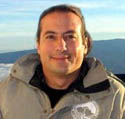
|
Conference travel to Greece |
|
My colleagues often ask me for advice about traveling from the United States to Greece for conferences. Here are some tips that I have offered in the past: Airlines: I prefer United since they partner with Lufthansa and Swiss, which means that there are a multitude of options for traveling to Greece with a connection in Europe. Also, the Greek airline Aegean Air, is a member of the United/Lufthansa Star Alliance, which means you're luggage can be checked through to other destinations inside Greece when you have a connection in Athens. On the return, if you are in, say Heraklion, they are also able to tag the bag so that you do not pick it up in Athens. You will also avoid paying excess weight fees (since the international weight limit is typically double the domestic limit). However, if you have a heavy bag, and choose to stay overnight in Athens in what looks like a stopover, then they will charge you for excess weight. Currency: I use my bank machine cash card to obtain Euros. I have found that Frankfurt and Heathrow have cash machines within the secure passenger area, which allows me to withdraw Euros before I get to Athens. Note that in Greece credit cards can be used for car rentals, petrol stations and store purchases, but typically NOT at restaurants, cafes, or bars. Hotels: Four-star hotels in Greece typically have lower quality than a four-star hotel in other places, and more expensive. Overall, smaller hotels can be better value. If you are flying though Athens on the return and have an early morning flight, then Athens Airport offersthe Sofitel hotel, which is expensive and does not permit a fourth human in their rooms. True story: they would not let us stay in one room when our party consisted of two parents, a four-year old and a one-year old. The Holiday Inn near the airport is NOT a better option because they allow only two persons per room, even if the third guest is an infant or child. Overall, my favorite hotel in the entire country is called White River Cottages in the southeast coast of Crete. Language: Most of everyone in Greece knows some English, and the menus are often written in English. In one instance I saw an American trying to ask a question by using Spanish, which was a huge failure. All he had to do was ask it in English. Even Greeks have to use English because a large number of employees in tourist areas are from abroad and have not learned Greek yet. Driving the organic way: Greek driving is organic - recall the educational films of blood cells squeezing by each other within your arteries without killing each other. In Greek driving, accomodate everyone in a reasonable manner, even when driving rules say that it is wrong or should not happen. For example, a single lane of travel typically has an additional emergency lane marked by a solid line. If someone wants to pass you, the organic driver will move to the right and drive within the emergency lane. Or, say that you are on a divided motorway, but an event such as a forest fire has closed down the opposite side. Without any police supervision, the organic drivers on the opposite side will find a way to enter your side, so you should yield your left passing lane to oncoming vehicles. If you do not drive organically, then you will probably cause an accident in Greece. And finally, if you kill someone's goat that is crossing the road, then it's your fault and you should pay if asked to (100 - 1000 Euro). Hospitals (& Pharmacies): Here are the ways that astronomers have ended up in Greek hospitals: (1) Renting a moped and wiping out on a mountain turn (N>1); (2) Jumping into the shallow end of a pool, breaking and fracturing bones (N=1); (3) Being stung by a giant vespid and suffering temporary blindness and shock (N=1). In general, pharmacists in Greece have authority to dispense medication that in the U.S. would require a perscription. So for many ailments you could first try showing up at a pharmacy and describe your problem. If the pharmacy is closed, then there may be a sign in the window that indicates the nearest pharmacy that is open after hours. Tips: These are not directly proportional to the bill amount. So if you have a 5 Euro coffee or a 15 Euro meal, in both cases you might leave a 1-2 Euro tip. Cover Charge: Most restaurants charge 1-2 Euros per person that sits at a table, even if they do not order food. How to order a frappe: In the summer you will see tall glasses with ice coffee topped with foam. This is instant Nescafe coffee that has been blended with a small amount of water to produce foam. Since everyone speaks English in Greece, you can order in English, but here are the options: (1) no sugar, no milk ("sketo"), (2) some sugar, no milk ("metrio"), (3) sweet, no milk ("gleeko"), and then options 4-6 are the same as 1-3 but you add milk ("meh gala"). If you want to experiment, then you also try ordering "Freddo", which is an iced cappuccino, also delicious.
|